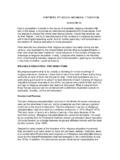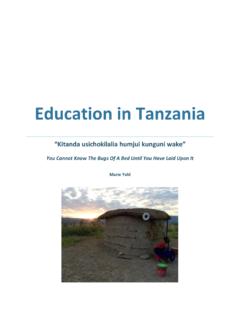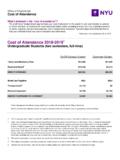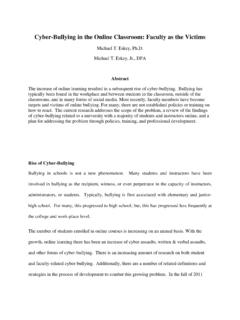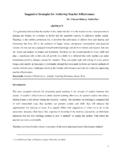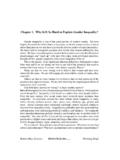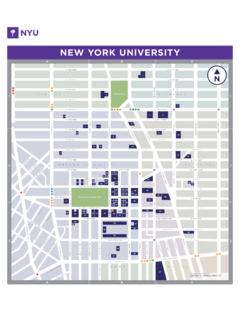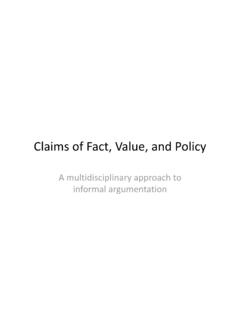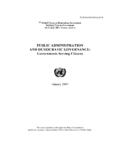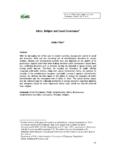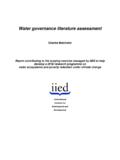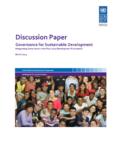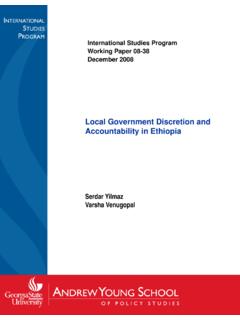Transcription of DEMOCRATIC GOVERNANCE: THEORY AND …
1 G. 53. 1731. Thursday 6:20 8:20 726 Broadway (office hours Thursday 5:20pm 6:20pm). G. Shabbir Cheema DEMOCRATIC governance : THEORY AND PRACTICE IN DEVELOPING. COUNTRIES. DEMOCRATIC governance is the range of processes through which a society reaches consensus on and implements regulations, human rights, laws, policies and social structures in pursuit of justice, welfare and environmental protection. Policies and laws are carried out by many institutions: the legislature, judiciary, executive branch, political parties, private sector and a variety of civil society. In this sense DEMOCRATIC governance brings to the fore the question of how a society organizes itself to ensure equality (of opportunity) and equity (social and economic justice) for all citizens.
2 This course examines institutions and processes of DEMOCRATIC governance in developing countries of Asia, Africa, Latin America, Eastern Europe, and the Middle East. It will focus on approaches and innovative solutions to promote and sustain DEMOCRATIC structures and processes for people-centered development. After a review of global trends and challenges to DEMOCRATIC transition and consolidation, we discuss key dimensions of DEMOCRATIC governance : electoral process and the role of electoral management bodies, access to justice and human rights norms and enforcement, decentralization and local governance capacity, transparency and anti-corruption strategies, legislative process and relations with the constituents, the role of civil society and media, and the impact of the global forces including the role of external partners.
3 For each of these dimensions, we examine universally recognized values and standards, DEMOCRATIC governance practice in developing countries, and the contextual factors that determine and or influence the practice including ethnic diversity, inequalities in income and assets, media, culture and religion and educational level. Each student will be expected to prepare a paper on one aspect of DEMOCRATIC governance and actively participate in class discussion. Readings marked * are required. Required Readings Inoguchi, T. , E. Newman and J. Keare, eds The Changing Nature of Democracy (Tokyo and New York: United Nations University Press, 1998).
4 Schedler, Andreas, Larry Diamond and Marc Plattner, eds. The Self-Restraining State Power and Accountability in New States (Boulder: Lynne Rienner, 1999. G. Shabbir Cheema, Building DEMOCRATIC Institutions: governance Reform in Developing Countries (Westport: Kumarian Press 2005). DEMOCRATIC governance A Package of Readings Available from the University Copy Center 1. 1. (8 September) Introduction to the course 2. (15 September) - Global Trends and Challenges evolution: the DEMOCRATIC century trends towards decentralization and urbanization rise of intra-state conflicts growing globalization and interdependence Concepts of DEMOCRATIC governance and human development Approaches to DEMOCRATIC governance Role of Internal and External Factors Readings * G.)
5 Shabbir Cheema, Democracy, governance and Development chapter one in Cheema, Building DEMOCRATIC Institutions : governance Reform in Developing Countries (Westport: Kumarian Press 2005). * Inoguchi,, T. and E. Newman, and J. Keane, The Changing Nature of Democracy (Tokyo, United Nations University Press 1998) Chapters 1-4. * United Nations Development Programme, Deepening Democracy in the Fragmented World (Oxford University Press 2002), Chapter one * Thomas Carothers, The End of the Transition Paradigm in Journal of Democracy, 13:1 (2002). Dahl, Robert A. On Democracy, (Yale University Press, 2000) part 1. Bratton, Michael and Nicolas van de Walle, DEMOCRATIC Experiments in Africa (Cambridge University Press 1997) chapter 1.
6 Freedom House, Freedom in the World: A Century of Progress Washington 2000. Huntington, Samuel P. The Third Wave : Democratization in the Late The Twentieth Century, (Norman, University of Oklahoma Press 1991, Chapters 1-3. United Nations Development Programme, governance for Sustainable Human Development (New York, 1997). Dalpino, Catharin, Deferring Democracy: Promoting Openness in Authoritarian Regimes (Brookings Press, 2000), chapter 1. 2. Przeworski, Adam et. al.,Democracy and Development: Political Institutions and Well-being in the World, 1950-1990 (Cambridge University Press, 2000). Dankwart Rustow, Transition to Democracy: Towards a Dynamic Model in Lisa Anderson ed.)
7 , Transitions to Democracy (Columbia University Press, 1999). Amartya Sen, Development as Freedom, (New York, Knopf 1999) chapters 1, 2. and 6. 3. (22 September) Electoral processes electoral process and political legitimacy electoral management bodies: structural patterns by regions control over party and campaign finance defining free and fair elections: registration and public awareness Readings * G. Shabbir Cheema, Elections and Democracy chapter 2 in Cheema, Building DEMOCRATIC Institutions: governance Reform in Developing Countries (Westport: Kumarian Press 2005). * Przeworski, Adam et. al. chapters 1 on Elections and Representation.
8 Democracy, Accountability and Representation( Cambridge University Press 1999). * Lopez-Pintor, Rafael, Electoral Management Bodies as Institutions of governance , (New York, United Nations Development Programme, 2000). * Pastor, Robert, A Brief History of Electoral Commissions in Schedler, Andreas, Larry Diamond and Marc Plattner eds., The Self Restraining State: Power and Accountability in New Democracies (Boulder: Lyne, Rienner Publishers, 1999). * Eisenstadt, Todd, Off the Streets and into the Courtroom: Resolving Post- Electoral Conflicts in Mexico , in Schedler, Andreas, Larry Diamond and Marc Plattner eds., The Self Restraining State: Power and Accountability in New Democracies * Gyimah Boadi, E.
9 Institutionalizing Credible Elections in Ghana in Schedler , eds United Nations Development Programme, Deepening Democracy in the Fragmented World (Chapter Two). 3. Institute of Democracy and Electoral Assistance (IDEA), Code of Conduct: Ethical and Professional Administration of Elections (Stockholm, 1988). Bratton, M. Second Elections in Africa Journal of Democracy, 1998. Samuel Huntington, The Third Wave: Democratization in the Twentieth Century (University of Oklahoma, Press, 1991) chapter 4. Bratton, Michael and Nicolas van de Walle, DEMOCRATIC Experiments in Africa, chapter 2. 4. (29 September) Promotion of Civil and Political Rights concepts of human rights and human development human rights violation vs promotion approaches global framework for human rights: treaty bodies rights-based approach to development institutional capacities and constraints in human rights enforcement examples of successful cases Readings * United Nations Development Programme, Human Rights and Human Development (New York, Human Development Report 2000), Overview and Chapter one * G.
10 Shabbir Cheema, Promoting Human Rights Through Inclusive Democracy . chapter 5 in Cheema, Building DEMOCRATIC Institutions : governance Reform in Developing Countries (Westport: Kumarian 2005). * Amartya Sen, Development as Freedom, Knopf, 1999, Chapter 10. * M. Forsythe, United Nations and Human Rights in R. Thakur and E. Newman eds. New Millennium, New Perspectives : The United Nations, Security and governance (Tokyo: United Nations University Press, 2000). J. Symonides, Human Rights: New Dimensions and Challenges (Brookfield, Ashgate Publishing 1998). United Nations Development Programme, Deepening Democracy in a Fragmented World, (Chapter Two).
